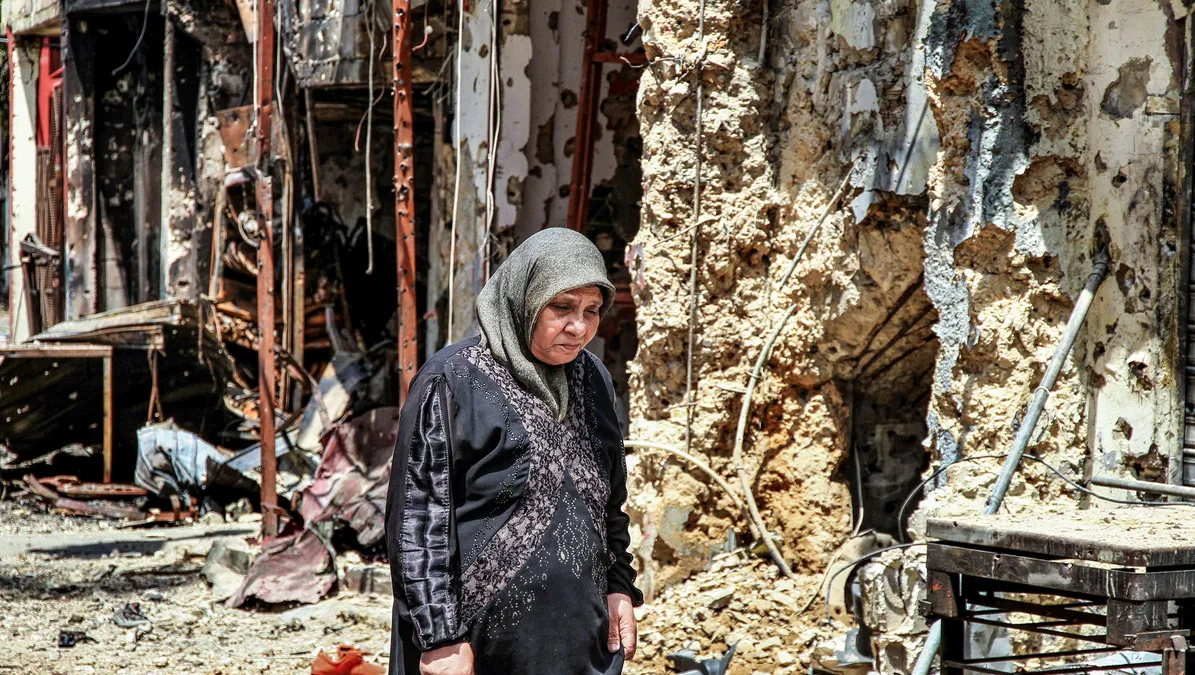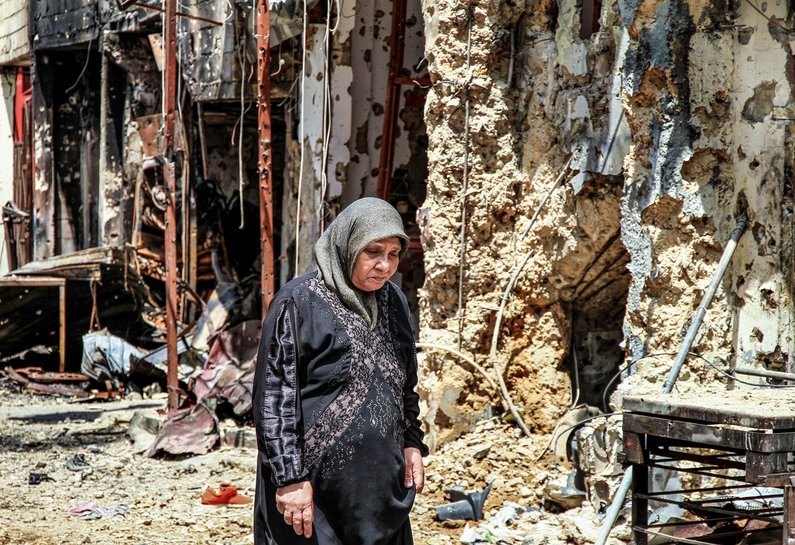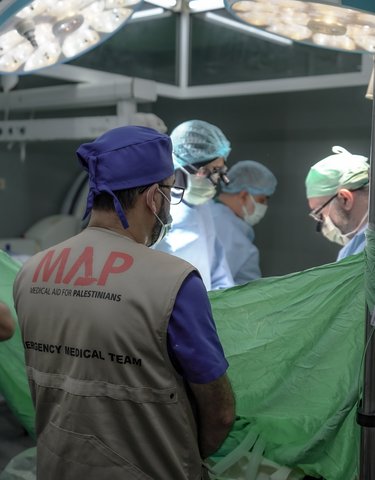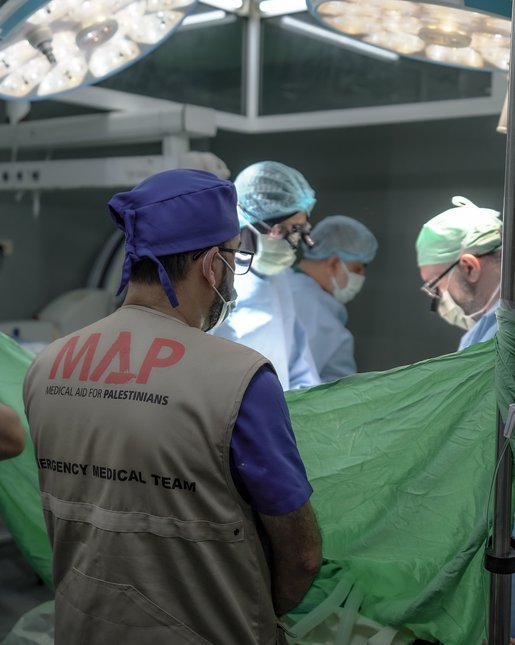MAP provides support for women and children displaced by violent clashes in Ein el-Hilweh refugee camp
10 August 2023


The clashes have not only resulted in physical damage within the camp but have also taken a heavy toll on the mental health and wellbeing of its residents, especially children, who were exposed to the violence. In response, Medical Aid for Palestinians (MAP) and its partners have provided vital support.
Ein el-Hilweh camp, located in the southern city of Saida, is the largest Palestinian refugee camp in Lebanon, housing more than 50,000 Palestinian refugees who have long endured poor living conditions, marginalisation and a protracted humanitarian crisis.
On Saturday 29 July, violence broke out in the camp after the killing of a member of an armed Islamist group and the subsequent killing of Fatah-linked commander Abu Ashraf al-Armoushi and several of his associates. Following six days of intense fighting, which killed 13 people and left more than 60 more wounded, a ceasefire came into place on 3 August.
Around 2,000 people were displaced from their homes during the fighting, with many fleeing to stay with relatives in Saida. But 600 of those displaced, including 350 children, had nowhere else to go and were forced to take shelter inside UNRWA (the UN agency for Palestinian refugees) schools outside the camp.
Health clinics, schools and other services within the camp were forced to close and, due to security risks, local humanitarian organisations have struggled to enter the camp. As of 9 August, one of the two UNRWA health clinics has reopened. But the health needs, particularly of pregnant women and children, have exacerbated.
In light of this, MAP’s team of community midwives have been working to ensure that pregnant women and newborns receive the care they desperately need. They have been providing prenatal care visits, pregnancy follow-ups, health check-ups and postnatal support to displaced families sheltering in the areas surrounding Ein el-Hilweh – including in Mieh Mieh refugee camp and the Fawwar area.
“One mother who usually receives home visits told a MAP midwife that her husband had died during the clashes. Another shared how their home was destroyed,” said Wafa Dakwar, MAP’s Senior Programme Manager in Lebanon. “In a situation where medical resources are limited, our dedicated and skilled midwives are a beacon of hope for mothers and children who would otherwise face dire risks.”
Restoring hope through psychosocial support
Recognising the lasting trauma that witnessing violence and displacement can have on the camp’s residents, particularly its children, MAP’s partners Nabaa, the Solidarity Association, and Association Najdeh have mobilised dedicated teams of mental health professionals to provide psychosocial support to children and their families.
our dedicated and skilled midwives are a beacon of hope for mothers and children who would otherwise face dire risks.” – Wafa Dakwar.
This support is critical for children given that UNRWA schools inside the camp remain closed. Dorothee Klaus, the Director of UNRWA in Lebanon, has warned that the significant damage to schools could delay the start of the school year for 6,000 children.
“With shelters destroyed, schools damaged and children suffering from trauma, the psychosocial support provided by MAP’s partners is now more important than ever,” said Wafa.
As in all of the crowded Palestinian refugee camps in Lebanon, residents of Ein el-Hilweh live in dire conditions. They face restrictions on their right to work, discrimination, and are permanently denied their right to return to their homelands. This state of perpetual humanitarian crisis leads to tensions, and conflict between armed factions vying for control in the camp can escalate rapidly.
As Palestinian refugees begin to return to Ein el-Hilweh, UNRWA will lead an assessment of the health needs on the ground. MAP is monitoring the situation closely and is ready to respond further if necessary.
In the meantime, our devoted midwives and mental health partners will continue working relentlessly to provide vital maternal and child care, and to repair the psychological wounds inflicted by the conflict.
You can support Palestinian refugees in Lebanon by making a donation today.
Photo: A Palestinian woman walks past destruction caused by heavy clashes between armed groups inside Ein el-Hilweh refugee camp in Lebanon. (Credit: STR/dpa/Alamy Live News).

